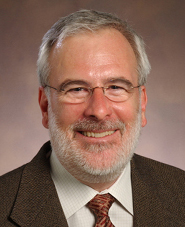
Richard N. Armstrong
Biochemistry Department, Professor of Biochemistry, Professor of Chemistry
- : r.armstrong@vanderbilt.edu
- : 615-343-2920
- :
842A Robinson Research Building
23rd & Pierce Avenue
Nashville, - 37232-0146
Name: Armstrong, Richard N.
Title: Professor of Biochemistry
Department: Biochemistry
Office Address: 842 RRB
Phone Number: 615-343-2920
E-mail: r.armstrong@vanderbilt.edu
Lab URL: https://medschool.vanderbilt.edu/armstrong-lab
Research Keywords: Mechanistic enzymology x-ray crystallographic analysis of enzymes involved in the metabolism of xenobiotics
Research Specialty: Structural and mechanistic enzymology
Research Description: Research efforts in Professor Armstrong’s laboratory are embodied in three projects directed at elucidating the mechanisms of action of enzymes involved in the metabolism of foreign or xenobiotic molecules. These catalysts, known as detoxication enzymes, are essential components of any organism’s ability to resist chemical insult. The first project is a study of glutathione transferases, a family of enzymes involved in the metabolism of electrophilic molecules such as expoxides, alkyl halides and a,b-unsaturated carbonyl compounds. From studies of the physical organic chemistry occurring in the active site, aspects of the kinetic, chemical, and stereochemical mechanisms of these enzymes have been elucidated. In addition, high-resolution three-dimensional structures of several glutathione transferases have been solved and are being used as a guide in the construction of chimeric or hybrid enzymes with altered catalytic properties. The functional properties of the mutant enzymes provide insight into the specific role of various amino acid residues in the region of the active site. The site-general and site-specific incorporation of unnatural amino acids into this enzyme is being investigated as a tool to refine our understanding of the mechanism of catalysis. Many detoxication enzymes are membrane-bound and pose unique problems for mechanistic analysis.
In a second project two membrane-bound detoxication enzymes, enzymes epoxide hydrolase and UDP-glucuronosyltransferase are being investigated. Efficient expression systems are being developed for these enzymes to facilitate structural and mechanistic studies. The discovery that epoxide hydrolase proceeds via a covalent ester intermediate has aided in the identification of active site residues that participate in catalysis and has helped define the evolutionary relationship of this protein with other hydrolase enzymes. Microorganisms also have detoxication enzymes which allow them to use many organic compounds as energy sources or to resist the toxic effect of antibiotics. This later phenomenon contributes to the erosion of the efficacy of clinically useful antibiotics and represents a serious human health problem. The objectives of the third research project are to elucidate the catalytic mechanisms and structures of enzymes involved in the resistance of microorganisms to the antibiotic fosfomycin. These objectives include, (i) the construction of high-level expression systems for fosfomycin resistance proteins; (ii) elucidation of the catalytic mechanisms of the enzymes, by spectroscopic, steady state and pre-steady state kinetic techniques; and (iii) determination of the three-dimensional structures by X-ray crystallography. The information will provide a rational basis for the design of new drugs to counter antibiotic resistance.
Postdoctoral Position Availability and Details: Please apply by e-mail to r.armstrong@vanderbilt.edu sending CV and names of three references.